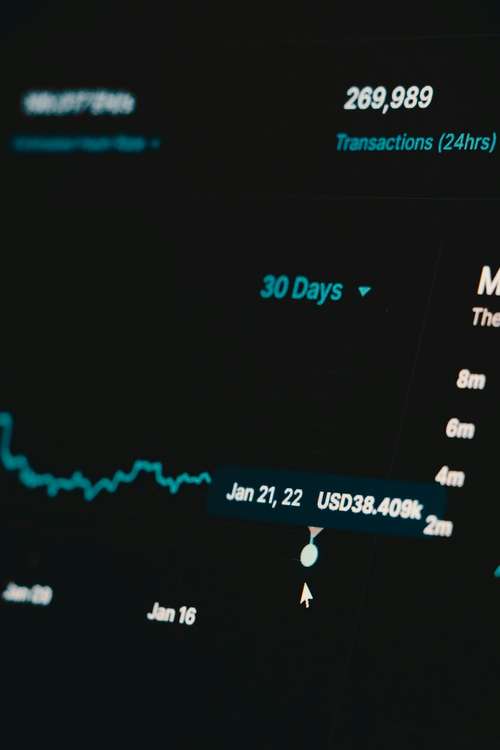Two artists, Brian Frye, a law professor, and Jonathan Mann, a musician known as “Song a Day Mann,” have filed a lawsuit against the United States Securities and Exchange Commission (SEC). They are questioning whether the SEC has the right to regulate non-fungible tokens (NFTs).
This lawsuit was filed on Monday in the U.S. District Court for the Eastern District of Louisiana and it is directed at the SEC and its five commissioners.
The reason for the lawsuit is whether NFT artists need to register their NFT artworks with the SEC before selling them.
The artists also want to know if they must disclose the risks associated with buying their digital creations.
Today, @songadaymann and I sued the @SECGov in Louisiana federal court, asking for a declaration that the SEC can’t regulate the sale of NFT art. I’ve argued that the SEC is abusing its authority for years & now I’m testing my theory. Here’s the complaint. https://t.co/AD8xYpV0kC
— Brian L. Frye (@brianlfrye) July 29, 2024
Previous SEC NFT Regulations and Their Impact
The SEC’s involvement with NFTs is not new. Nearly a year ago, the SEC took its first major action against an NFT project, targeting Impact Theory, a YouTube channel and podcast studio.
The SEC accused Impact Theory of marketing its “Founders Key” NFTs as investment opportunities, suggesting that buyers could earn a profit if the business succeeded.
The SEC classified these NFTs as investment contracts, subject to securities regulations, and the case was settled with Impact Theory agreeing to penalties.
Following this, the SEC also went after Stoner Cats 2 LLC. The agency alleged that Stoner Cats had conducted an unregistered NFT offering that raised $8 million. This case also ended in a settlement.
Also read: Top NFT-focused Tokens Keep Spiking By Volume, Check the Top 3
Frye and Mann’s lawyers argue that the SEC’s approach threatens the livelihoods of NFT artists and other creators who are seeking new technologies.
They claim that the SEC’s scrutiny over NFTs, which they see as a growing and innovative medium, could stifle artistic freedom and financial stability.
“Artists nationwide are suddenly confronted with the specter of the SEC attacking their distribution of visual or musical art as an unregistered securities offering. The SEC’s approach jeopardizes the creative freedom and financial stability of artists experimenting with novel, rapidly evolving technology,” the complaint read.
Also read: 5 NFT Quiz Questions for Beginners - Test Your Level
Comparison to Taylor Swift's Concert Tickets
The lawsuit draws an interesting comparison between NFTs and concert tickets sold by artists like Taylor Swift.
Frye and Mann's attorneys argue that similar to NFTs, Swift's concert tickets are resold in secondary markets and are promoted by the artist. They believe it would be unreasonable for the SEC to classify Swift’s tickets or other collectibles as securities.
The lawsuit seeks both declaratory and injunctive relief. This means Frye and Mann want the court to prevent what they see as unfair enforcement actions by the SEC against NFT projects.
“Imagine if the SEC found that Taylor Swift songs or collectibles were securities (or were securities if merely released in NFT form), and ordered them to be destroyed. It sounds farfetched. But that is exactly what has happened to Impact Theory and SC2.”
Reactions from the Web3 Community
The lawsuit has stirred reactions within the Web3 community. Katherine Minarik, the chief legal officer at Uniswap Labs, has criticized the SEC’s actions as arbitrary and unlawful.
She said that the SEC's current approach is forcing artists to take legal action to protect their work.
Minarik expressed her concerns on X (formerly Twitter), stating, “We have reached the point where the SEC’s application of securities laws is so arbitrary and unlawful that artists are compelled to sue the SEC directly to protect their livelihoods. The SEC is broken.”
Wow. We have reached the point where the SEC’s application of securities laws is so arbitrary and unlawful that *artists* are compelled to sue the SEC directly in order to protect their livelihoods. The SEC is broken. (And fwiw I have thoroughly enjoyed many of these songs!) https://t.co/F6mfq2LJ6g
— Katherine Minarik (@MinarikLaw) July 29, 2024
The Blockchain Association supports the lawsuit, they argue that the SEC should not have authority over NFT art and that artists should not have to scale through complex securities laws just to sell their creations.
The group posted on X, stating, “It is unreasonable to expect musicians, designers, and other artists to hire lawyers to weigh in on whether art sales will be considered a securities offering by the SEC.”



